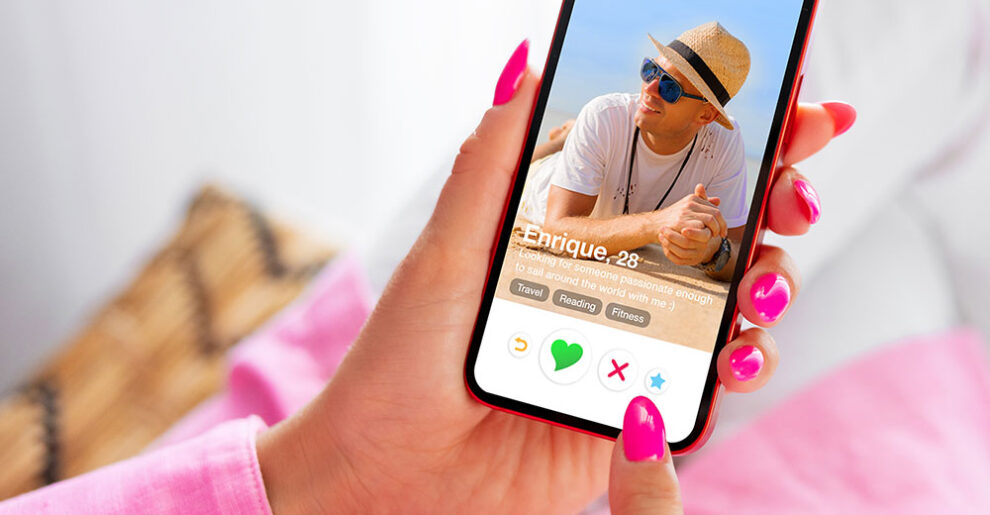Mozilla’s newest browser has detected nearly two dozen online dating apps. Privacy Not Included Researchers Tuesday criticized the app for failing to meet privacy standards and sharing customer data to third parties. They also cited the fact that the user’s right to delete their data was not recognized.
Mozilla claims that financial pressures force app owners to experiment with new features, subscriber models, integrate AI and diversify their income streams. They also gamify the apps in order to make them addictive and to siphon more data off of users.
The researchers found that eighty percent (80%) of dating apps will sell or share the data they collect from their users and don’t allow them to be deleted.
Dating apps that were tagged as Privacy Not Included included Badoo. Black People Meet. BLK. Bumble. Christian Mingle. Elite Singles. Facebook Dating. Grindr. Her. Hinge. Jdate. Lovoo. Match. Muzz. OkCupid. OurTime. Plenty of Fish. Scruff. TanTan. Tinder. Zoosk.
Dating Apps Are Rejected By Gen Z
“The problem is the dating apps say they need to collect this personal information to help you find an ideal match, but they use that information far beyond the scope of what would help you find a partner,” said Privacy Not Included researcher and writer Zoë MacDonald.
She told TechNewsWorld that “they share and sell this information to advertisers”. “And half don’t even meet our security standards.” This means that the data is vulnerable to a hack, breach or leak. It’s available for anyone.
Mozilla researchers say that due to the drop in popularity, dating apps are facing financial difficulties. With millennials married off, Gen Z — younger, poorer, more tech-savvy, and less prone to casual sex — has become disenchanted with the apps, which has hurt the apps’ makers’ bottom line. According to the New York Times, the two biggest players in the domain — Match Group and Bumble — have lost US$40 billion in market value since 2021.
Brian Prince is the founder and CEO at Top AI ToolsBoca Raton is home to an AI resource, educational platform and AI tool.
Prince cited an Hinge report that showed Gen Z shuns dating apps, and dating in general for fear of rejection. “Putting themselves ‘out there’ online can be scary for a generation that has a hard time getting comfortable with being uncomfortable, so to speak,” he told TechNewsWorld.
He added that catfishing, harassment, and other forms of online dating are making it harder for people to find partners. “Plus, many apps hide their best features behind a paid-for paywall. This makes it difficult to find compatible partners.”
Gen Z is Overwhelmed with Privacy Concerns
Ashley Johnson, senior manager of policy at the Information Technology & Innovation Foundation (ITIF), an organization that conducts research and develops public policies in Washington D.C.
She told TechNewsWorld that “they were young adults when the Covid-19 epidemic and social distance took place, so it’s possible they are now seeking more in-person contacts to make up for these years.”
She said that Gen Z might not need dating apps if they use more general services, like social media.
Alicia diVittorio has been a data privacy specialist and advocate for many years. DataGrailThe research of, a San Francisco-based data privacy company, shows that Gen Z is more sensitive to privacy issues, even though they spend a lot of time online.
She told TechNewsWorld that younger generations are more aware of their online privacy and feel more concerned about it. “Nearly 50 percent of Gen Z is overwhelmed by privacy in comparison to only one third of boomers.”
She continued: “And, with the overturning Roe v. Wade in 2013, younger generations are more afraid of how their data could be used.”
Geodata Collection Too Much
Mozilla researchers have also discovered that many apps automatically collect the geolocation of users unless the user opts out. They also noted that other apps such as Hinge Tinder OKCupid Match Plenty of Fish BLK and BlackPeopleMeet insistently access users’ geolocation data. These apps can collect data regardless of whether the user is actively using them.
Mozilla’s MacDonald stated that “a lot of these applications want access to your location 24 hours a day, 7 days a week regardless if the app requires this access in order to function.” This is a liability, because this information is sensitive and it’s at risk when transmitted via the internet.
DataGrail’s diVittorio stated that geolocation data shared or stolen could be especially harmful to women following Roe v. Wade.
She explained that the California settlement with Sephora in 2022 was partly because the two companies shared the geolocations of women. There were concerns about the information getting into the hands people who were watching for women looking to get abortions.
In the Sephora case that the company settled with the state for $1.2M, the state alleged Sephora violated California Consumer Privacy Act, by selling personal information about customers without disclosing this practice properly or obtaining their explicit consent.
A Safety Risk or a Necessary Feature?
Ira Winkler CISO at CYETel Aviv-based cybersecurity optimization company.
TechNewsWorld reported that “some dating apps” allow users to see where other users live in close proximity. This allows malicious users to locate a user using basic information, then quickly search for other sites in order to gather much more data than is possible.
Johnson, from the ITIF, acknowledged that there are many horror stories of users’ geolocation data being misused. Geolocation data, however, is essential for dating applications. If users want to find others geographically close to them — if they are not interested in long-distance relationships and want to meet someone nearby — a dating app would need their geolocation data to match them with the right people.”
She added that “there should be safeguards to protect this data from being misused.”











